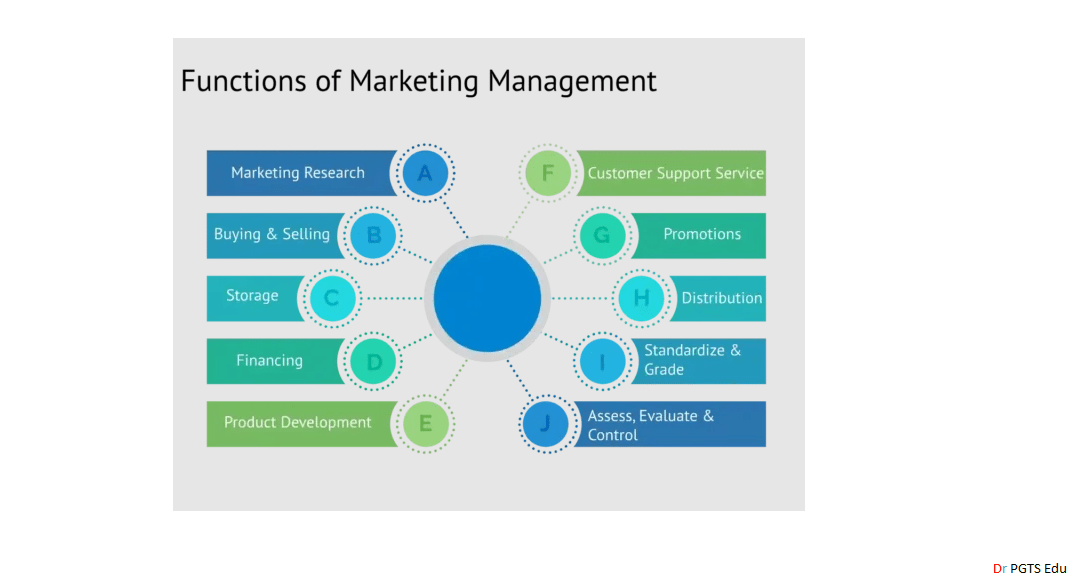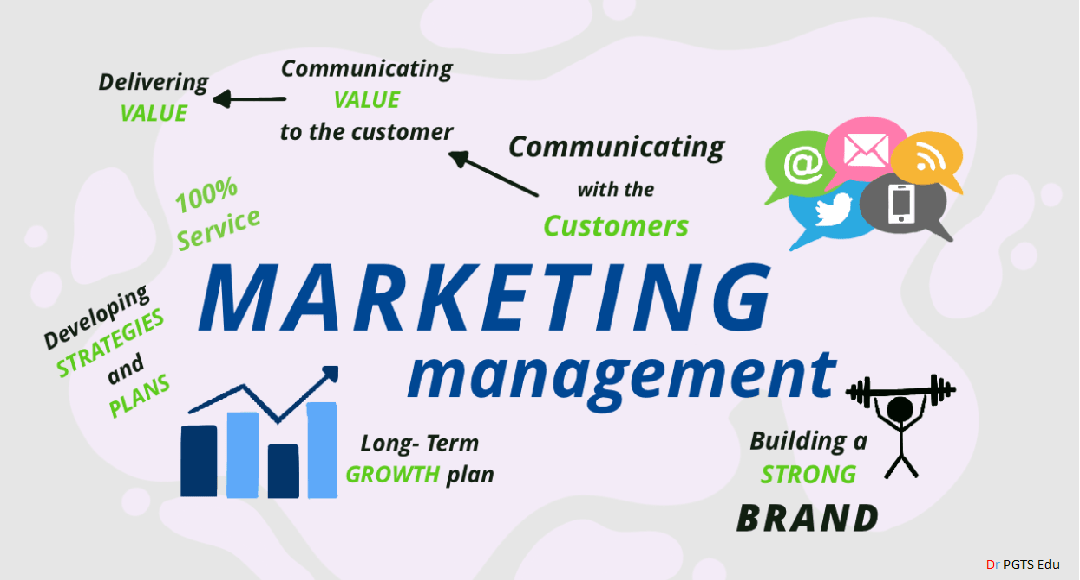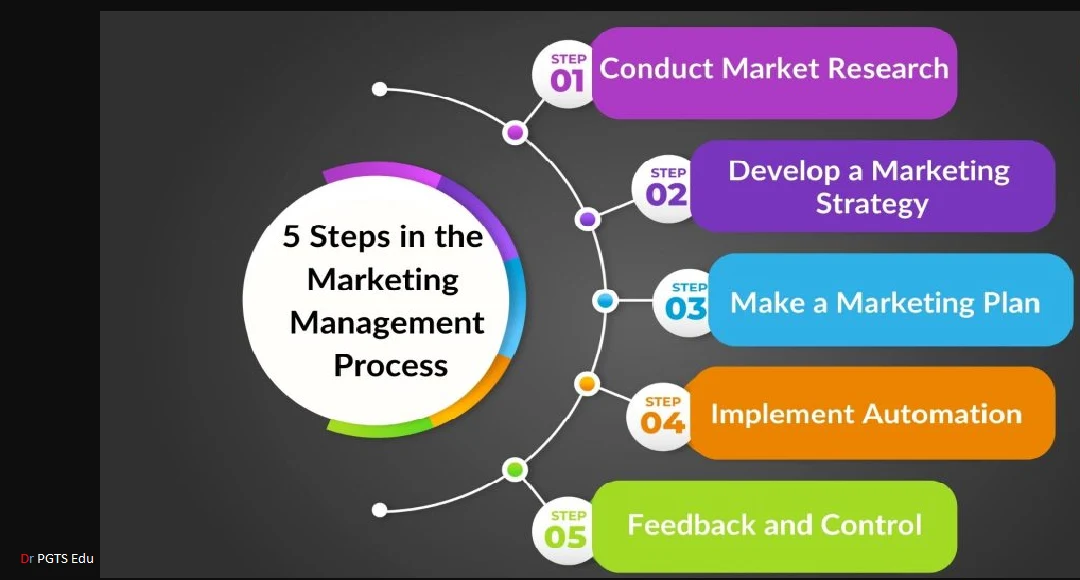Marketing management is the backbone of any successful business, yet many top brands keep their best strategies under wraps. Effective marketing goes beyond just promoting products—it’s about understanding customer needs, creating value, and building long-term relationships. In this article, we’ll uncover the secrets behind successful marketing management, exploring its meaning, characteristics, types, functions, market segments, and the latest trends in India.
Marketing Management
Marketing management refers to the process of planning, executing, and monitoring marketing strategies to meet consumer demands and achieve business goals. It involves market research, branding, advertising, sales, and customer engagement. The primary aim of marketing management is to create value for customers while ensuring profitability for the business.
Key Characteristics of Marketing Management
- Customer-Centric Approach – Successful brands focus on solving customer problems and fulfilling their needs.
- Dynamic and Evolving – Marketing trends change rapidly, requiring businesses to adapt to new technologies and consumer behaviors.
- Data-Driven Decision Making – Leading companies use analytics and consumer insights to optimize campaigns and strategies.
- Integration Across Channels – Top brands ensure seamless marketing across digital, social media, traditional, and direct marketing channels.
- Competitive Advantage – A well-planned marketing strategy differentiates a brand from its competitors and strengthens its market position.
Types of Marketing Management
Marketing management can be categorized into various types, depending on the approach and objectives:
- B2B Marketing – Focuses on selling products or services to other businesses.
- B2C Marketing – Targets individual consumers through various advertising and engagement tactics.
- Digital Marketing – Utilizes online platforms such as social media, search engines, and email marketing.
- Brand Marketing – Aims at establishing a strong brand identity and reputation in the market.
- Product Marketing – Emphasizes promoting and positioning a specific product effectively.
- Relationship Marketing – Focuses on building long-term customer relationships through personalized engagement.
Marketing Management Functions
Marketing management plays a crucial role in business success. Some essential functions include:
- Market Research and Analysis – Understanding market trends, consumer behavior, and competitors.
- Product Development – Creating and improving products based on customer needs and market demand.
- Brand Positioning – Establishing a unique and compelling brand identity.
- Pricing Strategies – Setting competitive and profitable prices.
- Promotion and Advertising – Utilizing different platforms to increase brand awareness and sales.
- Sales Management – Managing sales teams and processes to drive revenue.
- Customer Relationship Management (CRM) – Engaging with customers to ensure loyalty and satisfaction.
- Performance Monitoring – Measuring the effectiveness of marketing campaigns and making necessary adjustments.

Market Segments in Marketing Management
Successful marketing requires segmenting the target audience based on different factors:
- Demographic Segmentation – Based on age, gender, income, education, etc.
- Geographic Segmentation – Dividing the market by location, such as city, region, or country.
- Psychographic Segmentation – Categorizing consumers based on lifestyle, values, and personality.
- Behavioral Segmentation – Focusing on purchasing behavior, brand loyalty, and usage patterns.
- Firmographic Segmentation – Used in B2B marketing, dividing businesses based on size, industry, or revenue.
Recent Trends in Marketing Management in India
India’s marketing landscape is evolving rapidly with digital transformation and changing consumer preferences. Some of the latest trends include:
- AI and Automation in Marketing – Businesses are using AI-driven analytics, chatbots, and personalized marketing automation.
- Influencer Marketing Boom – Brands collaborate with influencers to reach a wider audience and build trust.
- Growth of Regional Language Content – With internet penetration in rural areas, brands are focusing on multilingual marketing.
- Rise of Video Marketing – Short-form video content on platforms like Instagram Reels and YouTube Shorts is gaining traction.
- Sustainability and Ethical Marketing – Consumers prefer brands with eco-friendly and socially responsible initiatives.
- Voice Search Optimization – As voice assistants like Alexa and Google Assistant become popular, brands optimize content for voice search.
- Hyper-Personalization – Businesses use data analytics to offer personalized recommendations and targeted ads.
Marketing management is an ever-evolving field, and top brands continuously refine their strategies to stay ahead. By understanding the core aspects of marketing management—including its characteristics, functions, segmentation, and recent trends—businesses can create effective campaigns that drive growth and customer engagement. The Indian market, in particular, is witnessing a digital revolution, making it crucial for businesses to adopt innovative marketing strategies. Staying updated with the latest trends and leveraging advanced technologies will be the key to success in modern marketing management.
Read also: Marketing Management


